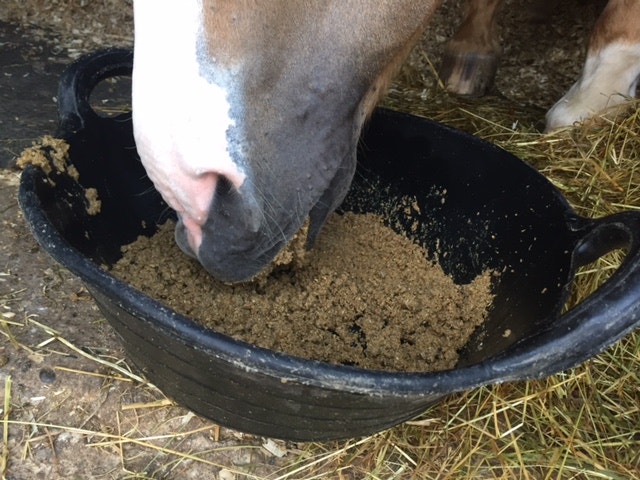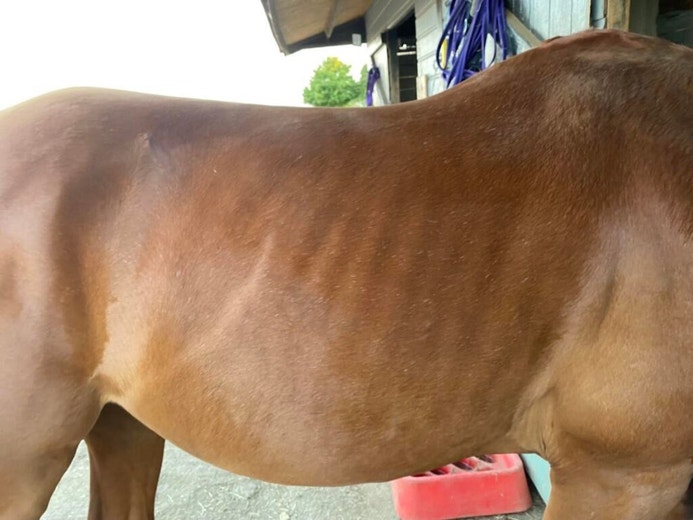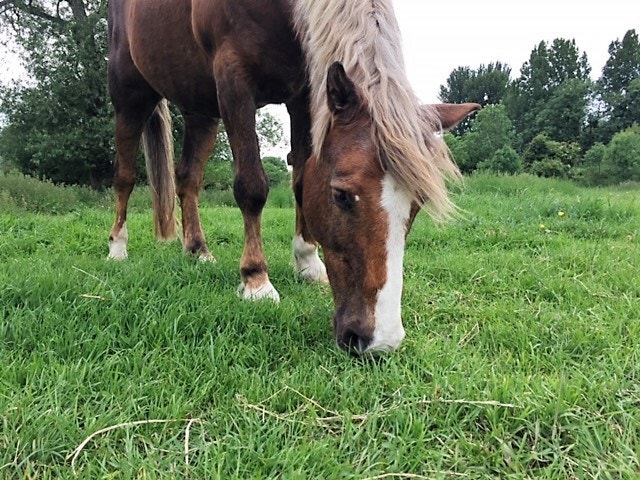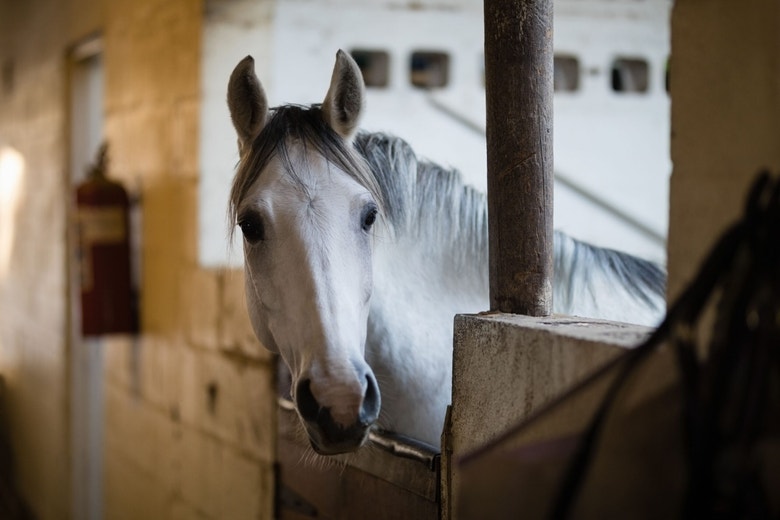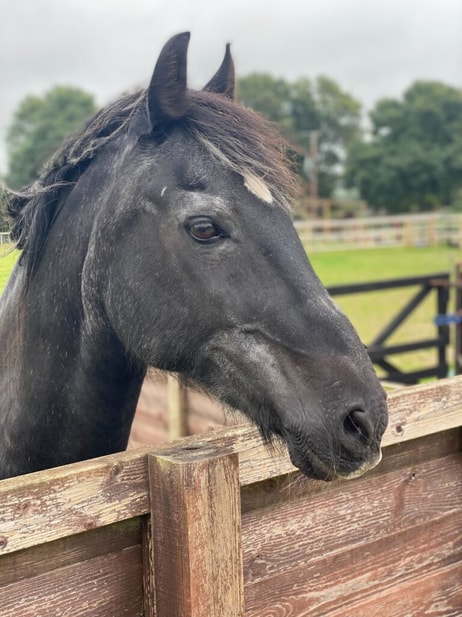
#SPILLERSScience: New research presented at prestigious global endocrine conference
SPILLERS™ was the only UK feed brand to be represented at the prestigious Global Equine Endocrine Symposium(open in new tab) last month, where ground-breaking work on endocrine disease was revealed.
We, together with international collaborators, were involved with 10 of the 37 research papers presented, advancing our quest to understand more about the diagnosis and management of Pars Pituitary Intermedia Dysfunction (PPID) or ‘Cushing’s syndrome’ and equine metabolic syndrome (EMS) – two conditions which can be associated with laminitis.
What was covered?
Our very own Director of Science, Dr Pat Harris, and colleagues from around the world presented research on
- Muscle atrophy (wastage) scores in horses with and without PPID.
-The possible association between insulin dysregulation and high ACTH concentrations (in the blood) in senior horses and ponies with no clinical signs of PPID. A blood test to measure ACTH concentration is commonly used to diagnose PPID.
-Whether concentrations of immunoreactive β-endorphin (a hormone produced in the pituitary gland) in the blood may be useful in helping to identify animals with PPID .
-The possible use of spontaneous blink rate as a non-invasive indicator of stress, in a group of senior horses and ponies with and without PPID.
-The effect of dopamine depletion – which is associated with PPID - on insulin sensitivity and insulin response to a glycaemic meal in Standardbred horses.
-Factors associated with the insulin response to an oral sugar challenge in a group of ponies. The oral sugar test (OST) is one practical method of diagnosing insulin dysregulation.
-The effect short-term transportation stress on insulin response in horses.
-The insulin response to small meals of forage pellets in insulin dysregulated vs non-insulin dysregulated horses.
-The concentration of adiponectin in the blood in a population of aged horses and ponies with and without PPID. Adiponectin is a hormone produced by fat cells and low adiponectin is a risk factor for laminitis.
-The evaluation of adiponectin and serum amyloid A concentrations in diet-induced insulin dysregulation. Serum amyloid A is a marker of inflammation.
-The effects of experimentally induced insulin dysregulation on adiponectin concentrations in metabolically healthy ponies.

What's next?
We are currently involved in a number of studies looking at how best to feed and manage the senior horse as well as the horse with insulin dysregulation. This includes being part of a major international project to improve the early diagnosis, healthcare, husbandry and nutritional management of PPID. We promise to keep you updated on our findings so watch this space!
References
- 1. Fang Li, Robert Spence, Melody de Laat, Patricia Harris, Johanna Sonntag, Nicola Menzies-Gow, Andy Durham, Simon Bailey and Martin Sillence Insulin dysregulation is associated with high autumnal ACTH concentrations in aged horses and ponies with no clinical signs of pituitary pars intermedia dysfunction (PPID)
- 2. M Erdody, N. Galinelli, NJ Bamford, S Mackenzie , T Warnken, PA Harris, MN Sillence, SR Bailey.Plasma immunoreactive β-endorphin concentrations and spontaneous blink rate as an index of stress, measured in a population of aged horses and ponies with and without PPID
- 3. M Erdody, S Mackenzie, N Galinelli, NJ, Bamford, T Warnken, MN Sillence, SR Bailey, PA Harris. Muscle atrophy scores in a population of aged horses and ponies with and without PPID
- 4. N. Galinelli, M Erdody, NJ Bamford, J. Sonntag, PA Harris, MN Sillence, SR Bailey. Effect of dopamine depletion on insulin sensitivity and insulin response to a glycaemic meal in Standardbred horses
- 5. Knowles, E.J., Harris, P.A., Elliott, J. and Menzies-Gow, N.J..Factors associated with the insulin response to an oral sugar challenge in a cohort of ponies
- 6. E.T. Jacquay, P.A. Harris, A.A. Adams Insulin response to short-term transportation stress in horses: Effects of age and insulin dysregulation.
- 7. E. Macon, B. Perron, P. Harris, M. Greiter, and A. Adams Insulinemic responses to small meals of forage pellets in insulin dysregulated vs non-insulin dysregulated horses
- 8. S. Mackenzie, N Galinelli,, M Erdody, NJ Bamford, MN Sillence, T Warnken, PA Harris SR Bailey. Plasma high molecular weight adiponectin concentrations in a population of aged horses and ponies with and without PPID
- 9. NJ Bamford, SI Jacob, PA Harris, ME McCue, SR Bailey. Evaluation of adiponectin and serum amyloid A concentrations in equine diet-induced insulin dysregulation
- 10. Marine Barnabé, Jonathan Elliott, Pat Harris, Nicola Menzies Effects of experimentally induced insulin dysregulation on adiponectin concentrations in metabolically healthy, insulin-sensitive ponies

